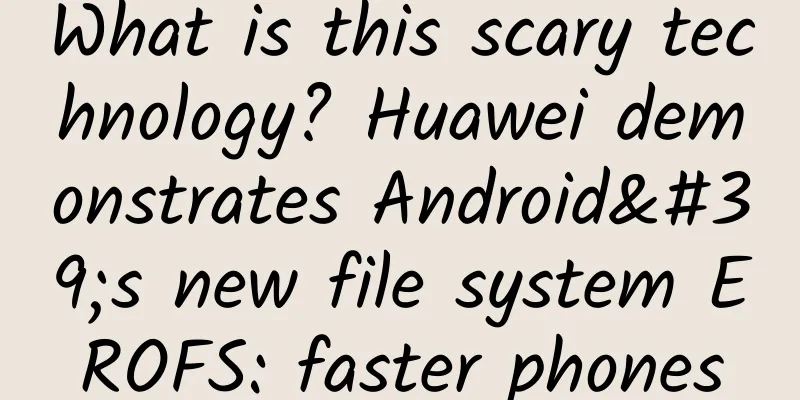HTC, the end of China's smartphone market

|
According to the announcement of HTC China Official Community, the HTC Official Community will be closed on February 7, 2020, and users are thanked for their continued attention and support to the HTC Official Community. Users with needs can follow the HTC official WeChat public account "HTC Official Service Account" for consultation. In addition, in early January 2020, HTC Elevate community users began to have access problems when logging in, and then the page showed that the project was no longer supported. This community is a high-end fan and supporter community of HTC Elevate that can only be registered by invitation. Struggling mobile phone business In some ways, before shutting down the community, HTC had its toughest year in nearly 20 years. On January 6, 2020, HTC released its 2019 financial report, which showed that HTC's full-year revenue in 2019 was only NT$10.01 billion (approximately RMB 2.34 billion), a year-on-year decline of 57.82% and a decline of 87% from 2017, sliding to the lowest value in the past 19 years; in terms of losses, HTC had lost NT$7.05 billion in the first three quarters of 2019 alone. Regarding HTC's performance in 2019, Bloomberg columnist Tim Culpan pointed out that its full-year revenue was not even as much as Apple's revenue from selling AirPods in two weeks; others believe that HTC's decline in performance is largely due to the shrinking mobile phone business. In fact, HTC (HTC Corporation) was founded in 1997 and is a mobile phone and tablet device manufacturer located in Taiwan, China. In 2008, HTC and telecommunications operator T-Mobile launched the world's first Android phone, T-Mobile G1. As a company that entered the smartphone field relatively early, HTC once dominated the field and had a market share of more than 9% in the global smartphone market. In terms of revenue, as early as 2001, HTC's revenue exceeded NT$15.55 billion; in 2011, HTC's annual revenue set a record of NT$455.1 billion (approximately RMB 106.64 billion), and its market value ranked above many mainstream mobile phone manufacturers, second only to Apple, reaching US$33.8 billion. However, less than a year after reaching its peak, HTC began to decline. Also in 2011, Apple filed a lawsuit against HTC for patent infringement, demanding that the United States ban the sale of all 29 HTC mobile phones. In December of the same year, the U.S. International Trade Commission ruled that some HTC mobile phones infringed the iPhone patent and banned the sale of HTC related products. In 2012, HTC's market share in North America plummeted from 24% to 6.2%. In the following two years, some HTC products were banned in the United Kingdom, the Netherlands, Germany and other countries. In 2017, HTC and Google reached an agreement that some members of HTC's mobile device department would join Google's hardware department; HTC would retain its own mobile phone brand and some teams, and would continue to launch new products. In the more than a year since then, HTC has indeed launched several new products based on its own mobile phone brand, but they have received far less attention than this $1.1 billion agreement. In 2018, the U.S. International Trade Commission ruled that HTC infringed two Nokia patents; in March 2019, the Düsseldorf District Court in Germany ruled that HTC infringed Nichia's YAG patent. In short, HTC, which has been involved in many patent disputes, has been struggling in the mobile phone market, with its revenue shrinking year after year and its profits turning from profit to loss.
In 2019, HTC did not launch any new flagship products and closed its official flagship stores on JD.com and Tmall. In October 2019, HTC's new CEO Yves Maitre admitted at the TCD event that HTC had stopped hardware innovation in the smartphone field and would shift its human, material and financial resources to the virtual reality field. However, he also said that HTC has not completely given up its mobile phone business and does not rule out the possibility of HTC deploying high-end 5G mobile phones in high-GDP countries. The money-burning all-in VR strategy Starting from 2015, due to the continuous shrinkage of its mobile phone business, HTC began to turn its attention to the VR market. Zhou Yongming, who had been at the helm of HTC for 11 years, stepped down as CEO and was succeeded by Chairman Wang Xuehong. The following year, HTC released the high-end VR headset device Vive and officially entered the VR market. In the following years, HTC has indeed put a lot of effort into the VR field and has become a benchmark in the industry to a certain extent. According to a report by Strategy Analytics, in 2018, HTC Vive, Sony PlayStation VR, and Facebook Oculus were the best-selling VR headsets, accounting for 77% of the total market revenue. HTC founder Wang Xuehong once publicly stated that the company's products that people will remember include not only smartphones but also VR products. However, the overall development trend of the VR industry has been unstable in recent years, and it may not be able to support HTC's vision for this field.
In 2015, the total amount of global financing for VR/AR was about US$600 million. According to data from CB Insights, a technology industry venture capital tracking agency, global investment in this field in 2016 increased by 118.1% compared with 2015. Other statistics believe that the increase was more than 300%. In 2017, the growth of global VR investment slowed down, and in 2018, global investment in VR began to decline. Although HTC has achieved good results in VR software and hardware, at this stage, VR is still a relatively niche market, and it cannot save HTC from a slump and bring good financial reports. As HTC's new CEO Yves Maitre reflected:
With the advent of 5G, the VR market seems to have new hope. Yves Maitre said that in 2019, HTC has launched the Vive Pro Eye headset for enterprises, and will focus on developing VR headsets and their applications in training and education in the future. However, it is worth noting that in the existing market, HTC faces two powerful rivals (Sony and Facebook). In addition, some mainstream mobile phone manufacturers are also eager to try in the VR field; for example, Huawei has launched Huawei VR glasses in October 2019, and Apple may also launch corresponding products in the future. For HTC, which is all in VR, the road ahead may still be shrouded in fog. This article is reproduced from Leiphone.com. If you need to reprint it, please go to Leiphone.com official website to apply for authorization. |
<<: Update your iPhone to iOS 13.4 and you don’t need to bring your car keys anymore!
>>: Why do mobile apps need permissions? These permissions cannot be granted casually
Recommend
I have just taken over an information flow delivery project. Where should I start?
As a novice, it is inevitable to lose direction i...
Huanwang Technology Annual Review: Fulfilling social responsibility, shining "billions" of screens help the industry move forward
In a blink of an eye, 2020 is coming to an end. D...
A strange transient was discovered, ejecting 10% of the mass of the sun at a speed exceeding 55% of the speed of light
Astronomers have discovered a new astronomical tr...
Review the feature upgrades and innovations of each generation of iPhone
Preface Since Apple released the first iPhone in ...
The first place of "the dirtiest fruit", be careful if you take one bite! Many people like to eat it in summer
With the arrival of hot summer, street fruit cutt...
Can you drive by looking at the central control screen? Xiaopeng's pilot assistance system interface is released, which looks like a racing game
Before the advent of autonomous driving technolog...
WeChat 8.0 status update: 28 new statuses added, including "split" and "with baby"
Have you updated WeChat 8.0? Upon investigation, ...
Community operation: How to operate a community from scratch?
1. Purpose Addressing current community needs: On...
From brainstorming to implementation, how should we operate and promote events?
A senior who works in operations said that event ...
After two months in the job, I would like to share my new experience on product operation and promotion!
After joining the new company, I had the opportun...
Case Analysis | How to achieve “unity of knowledge and action” when writing a promotion plan?
Today we are going to talk about writing a planni...
How to promote user conversion? 99% of them used this trick~
Today, I want to share with you a trick to promot...
If your eyes suddenly go dark, it may be a sign of blindness due to a stroke! The best rescue time is only 1.5 hours...
You must be tired after studying and working all ...
She is a true "light chaser", making the magic of the sun shine brightly in life
There has never been a lack of great women on the...









